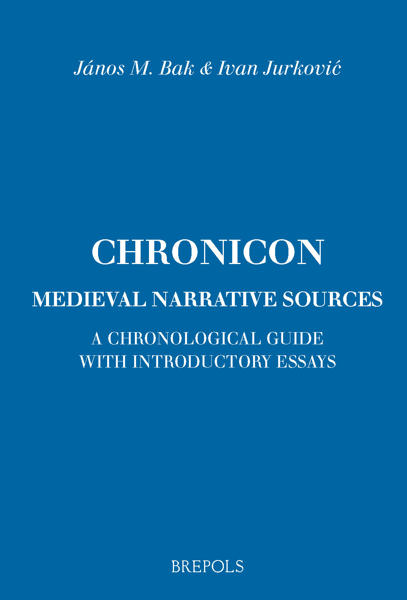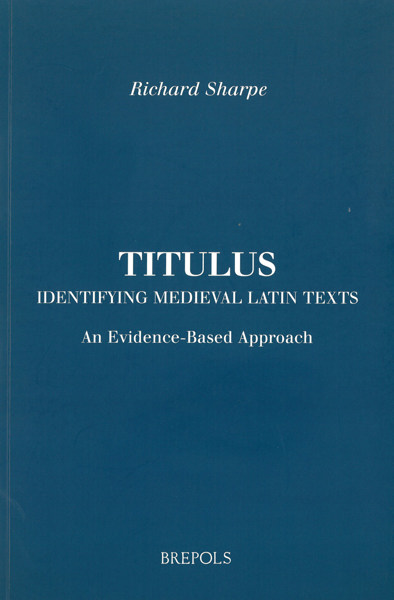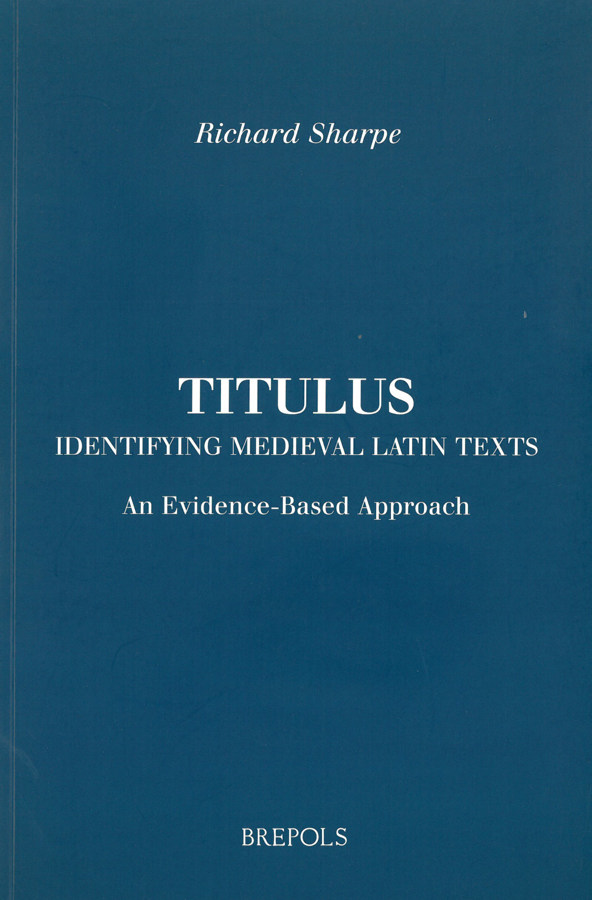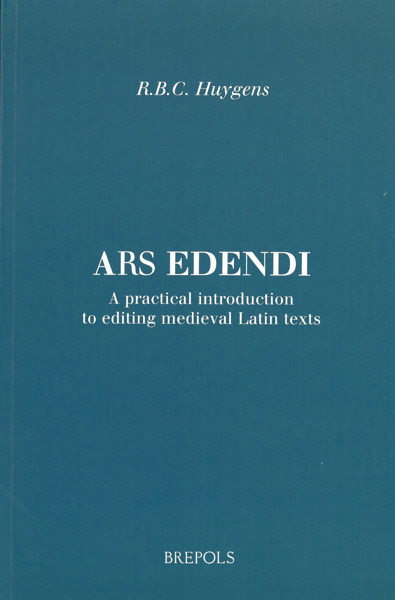
Titulus. Identifying Medieval Latin texts. An Evidence-Based Approach
Richard Sharpe
- Pages: 301 p.
- Size:140 x 210 mm
- Language(s):English, Latin
- Publication Year:2003
- € 35,00 EXCL. VAT RETAIL PRICE
- ISBN: 978-2-503-51258-7
- Paperback
- Out of Print
"An excellent guide for bibliographers (and medievalists of all stripes)! Systematic, inclusive, very informative, and decisive in its judgements. Beautifully written, and a pleasure to read. The author's enormous experience and vast amount of research come through on every page."
(Christopher J. McDonough)
"Sharpe's little volume is one that should find its way to the shelf of anyone who has to deal with manuscripts. It is a mine of practical advice on every page; rich in illustrative material taken from the author's own experience; and, mirabile dictu, written in a style that is clear and jargon free. If the tone is somewhat sharp at times, it needs be said that the criticism is appropriately directed. All in all, an elegant and authoritative guide that ably fulfills a pressing need in manuscript research."
(Frank T. Coulson, in The Medieval Review 04-02-12)
"Die Lektüre dieses unterhaltsam geschriebenen Buches sei jedem empfohlen, der katalogisieren muss, und ebenfalls all jenen, die zum ersten Mal eine mediävistische Forschungsarbeit beginnen und die Fallstricke der Nachschlagewerke erst kernenlernen müsse."
(C. Cardelle de Hartmann, in Deutsches Archiv 60, 2004, p. 703)
"It would benefit many medievalists – and non-medievalists – to read Titulus right through, for it is of itself a model of argumentative cogency (as a work whose justification resides in scholarly ambiguity and error is bound to be). This is certainly not an implied criticism of scholarship at large, but rather a recommendation of this book’s potential exemplary value."
(J. Luxford, in The Journal of Ecclesiastical History 56, 2005, p. 347)
"Discours de la méthode tenu par un spécialiste, qui devra désormais servir de lecture de chevet à tous les promoteurs de répertoires et catalogueurs de manuscrits, ainsi qu’aux éditeurs de texte pour les exemples qu’il fournit et la bibliographie qu’il procure."
(P. Bourgain, dans Archivum Latinitatis Medii Aevi 63, 2005, p. 355)
Richard Sharpe is Professor of Diplomatic in the University of Oxford and a Fellow of Wadham College. He is general editor of the Corpus of British Medieval Library Catalogues and author of A Handlist of the Latin Writers of Great Britain and Ireland.
Modern perceptions of texts are often not related to the way in which medieval readers understood them – conventional titles, for example, are often those supplied by early modern editors rather than by the manuscript tradition. This essay on the fundamental principles of medieval bibliography argues that the tituli and colophons accompanying a text in manuscript should be treated as evidence for the text’s bibliographical data and therefore recorded in descriptive catalogues of manuscripts and in bibliographical repertories of texts. The value of medieval library catalogues in showing medieval bibliographical perceptions is illustrated. Bibliographical co-ordinates of author, title, and incipit are discussed in some detail, and the historical accumulation of bibliographical tradition is examined. Reference books intended to assist manuscript cataloguers and students of medieval Latin texts are subjected to criticism; an annotated handlist of such books is included. Many texts in the middle ages were ascribed to various writers, and the habits of titling were far from constant, but the evidence of the manuscripts provides a better basis for understanding the changing perception of texts than has been recognized in the reference literature. Two extended examples demonstrate, on the one hand, a text consistently ascribed in the manuscripts but much misattributed by modern scholars and, on the other, one whose authorship and title were the subject of much medieval alteration but can none the less still be recovered from the tituli.



